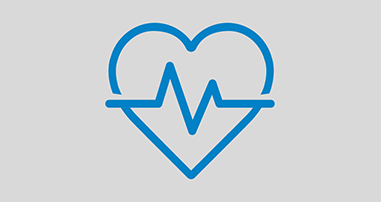What is pulmonary vein stenosis?
Pulmonary vein stenosis (PVS) is a rare and serious cardiovascular condition in which oxygenated blood from the lungs cannot easily return to the left side of the heart to be pumped out of the body. The affected areas of the lungs become congested, and the right side of the heart may have difficulty pumping blood to the lungs. This situation causes children with PVS to experience heart failure. If the disease worsens and goes untreated, PVS can be life threatening.
There are two main forms of PVS diagnosed in children:
- Primary PVS, also known as idiopathic PVS, is often seen in infants who are born prematurely and may have prematurity-associated lung disease, called chronic lung disease.
- Secondary PVS, also known as post-surgical PVS, can develop following surgical vein repair like in total anomalous pulmonary venous return (TAPVR).
When infants develop PVS, it is often seen in only one of four to five veins of the heart. However, PVS is a disease that can worsen in the affected veins over time and spread to other veins that were previously normal. Progression of PVS is one of the unique aspects of this disease, and this progression to other veins and previously healthy areas makes PVS particularly challenging and dangerous.
What are symptoms of PVS?
In most infants and children, PVS causes heart failure and breathing problems. In addition, some children may have difficulty gaining weight or experience delayed growth and development.
How is PVS treated?
PVS is a treatable disease that requires diligence, follow-up and close attention in case the condition worsens.
There are two main forms of treatment:
- Medical therapy: Medication is an important part of treating PVS. This may include diuretics, which can help relieve congestion in the lungs and ease symptoms of PVS. In some cases, children are also treated with medications for pulmonary hypertension, a type of high blood pressure that affects the arteries in the lungs and right side of the heart. In addition, the Children's PVS Program has begun trials with novel medication, including immunosuppression medications, such as rapamycin and Gleevec. These medications show early promise in slowing or diminishing the worsening of PVS.
- Direct vein therapy: Infants and children with PVS will likely undergo surgical or catheter-based interventions to treat affected veins. A child with PVS will typically have regular cardiac catheterizations so that the affected pulmonary veins can undergo balloon dilation or stenting to maintain the veins and keep them from closing off. In many cases, catheterizations are performed frequently—almost monthly—for the first two years of a child's life. However, as the disease begins to slow down, usually by age 2, the need for this type of treatment slows, with many older children undergoing a catheterization only one or two times each year.
What makes the PVS Program at Children's unique?
The Children’s PVS Program includes a multidisciplinary team within the Children's Heart Center. With more than 130 children treated in our program over the past five years, Children's has one of the largest populations of patients with PVS in the country.
Our PVS Program offers advanced medical therapy to our patients, and our team treats the most severe cases of PVS. We also collaborate with an international group, the Pulmonary Vein Stenosis Network, which is run by The Hospital for Sick Children in Toronto, Ontario.
Pulmonary Vein Stenosis Program
-
Meet Dr. James Kuo
Watch Dr. James Kuo explain how he gives families hope while treating their children for pulmonary vein stenosis.
Advancements and Innovation in Pediatric Heart Care
Cardiologists
- Shannon Jones, MD
- James Kuo, MD
- Timothy Slesnick, MD
- Divya Suthar, MD
- Rosemary Gray, RN
Hematologist and oncologist
Resources for Heart Families
*No. 12 on the U.S. News & World Report “Best Children’s Hospitals” list for 2024-25.
Contact Us 404-256-2593







